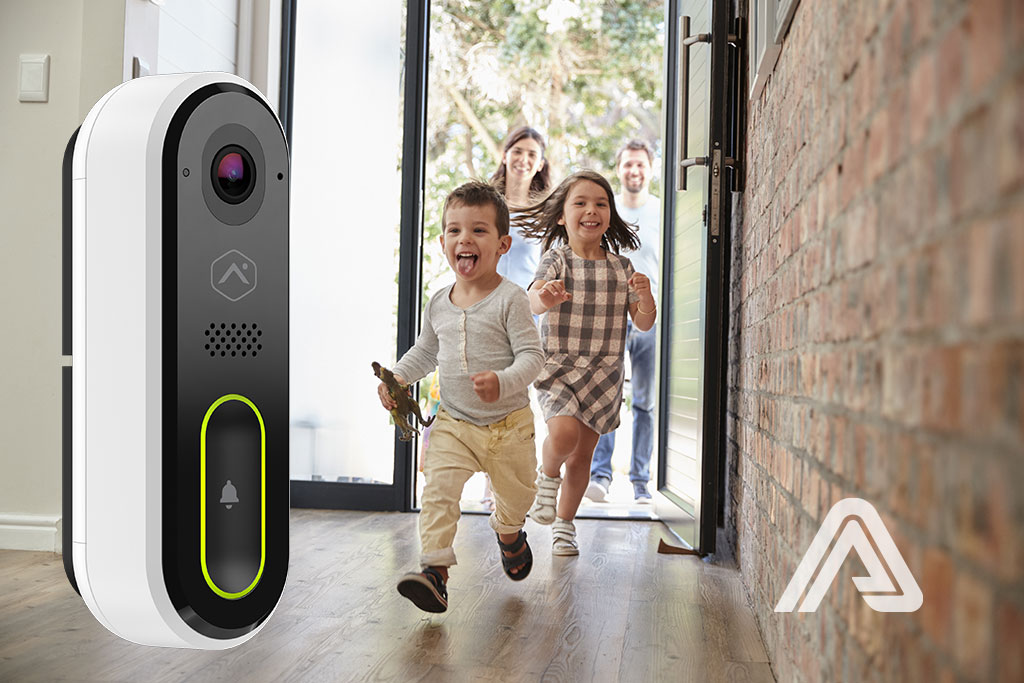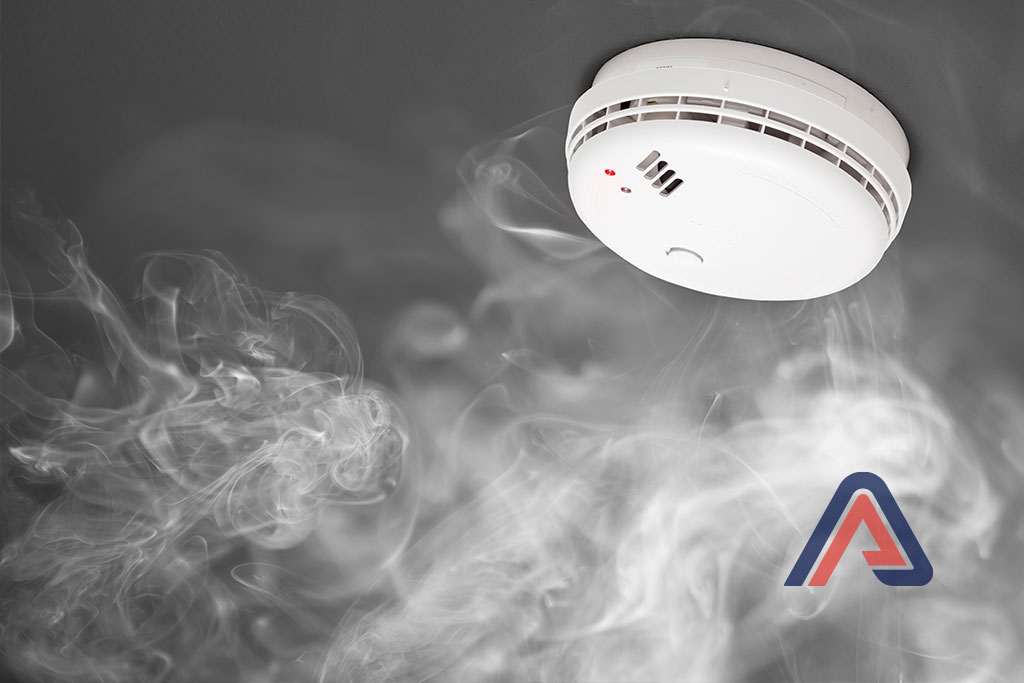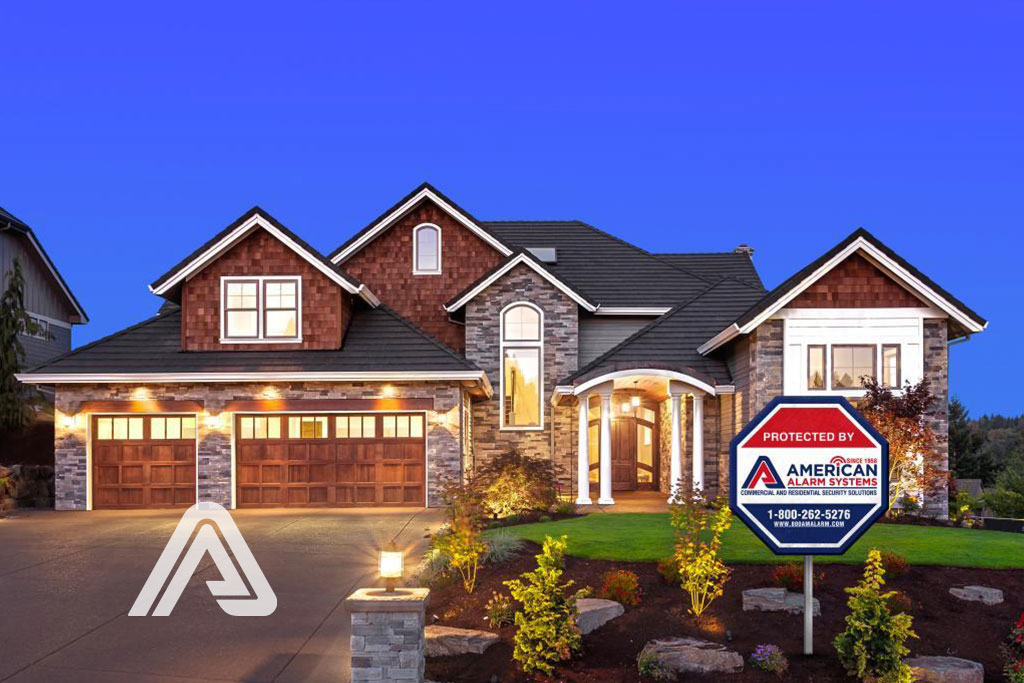- 9 Reasons American Alarm Systems is the Best Irvine Home Security - December 2, 2019
- How to Choose A Home Security System in Irvine, CA - October 24, 2019
- How Fire Alarm Systems Protect Your Business - September 5, 2019
Leaving kids home alone is always nerve-wracking, even when they’re technically old enough to stay by themselves while you make a quick run for milk. Because there will be times when your children are home on their own, it’s smart to prepare them (and you) for this eventuality.
If you do nothing else, these five strategies will make sure your kids stay safe—and keep you from having a panic attack.
Plan for Safety
Having a plan in place can make all the difference when kids need to be home alone. Cover all the bases by including everything from an emergency contact list (include poison control and police in addition to neighbors, friends, and family) to a fully-stocked first aid kit. Your home alone safety plan should also help your child know what to do in different situations, including a fire, natural disaster, or other emergency.
Before leaving them home on their own, review the plan in detail and run safety drills to help them understand and remember what needs to happen in an emergency. Make sure your emergency contacts know that they’re on your list, and give them a heads-up when you have to leave the kids home alone. It also helps to add reminders about things like how to answer the door when you’re away and when it’s time to call for help. Keep the plan in an easily accessible place and review it regularly.
Set the Ground Rules
Ground rules that cover what kids can and cannot do when they’re home alone should be a significant piece of your overall safety plan. Include guidelines that address emergency situations and normal, everyday routines.
- Cooking: Depending on the age and ability of your child, you may want to make the stove and oven off-limits when you’re away. There is much less risk with the microwave, so if you let them use it, be sure to practice with them when you’re at home so they’ll be comfortable and confident heating up food when you’re not there. The knife drawer should also be locked up tight.
- Answering the Door: The safest policy is not answering the door at all when kids are home alone. This eliminates the need for them to remember a script about what to say and do. If you make exceptions to this (such as a neighbor or relative stopping by to check in) be sure kids know in advance and institute the use of a safe word for extra security.
- Answering the Phone: If you still have a home phone, just let it go to voicemail. However, leaving a cell phone with your children is a great way to stay in touch with them and make sure they don’t accidentally answer the phone to a stranger and tip off their home-alone status.
- Friends: You need to decide if it’s okay for friends to come over when you’re not at home. This will depend on your children and their friends. If you do allow friends, be specific about who exactly is allowed to visit, for how long, and who will be dropping them off and picking them up. Clear and verify everything with the friend’s parents in advance.
- Screen Time: When the parents are away, the children will most definitely want to play. If you’re worried about too much TV or computer time, set a limit. Also, make sure parental controls are in place to keep kids from accessing inappropriate content.
- Locks: Check that all doors and windows are locked before you leave, and make sure children know not to unlock them while you’re away. If you have an alarm system, be sure to set it and make sure kids are trained with how to operate the system if they need to.
Check In
One of the best ways to have peace of mind when you have to leave your children home alone, is to hear their voices on the other end of a phone. Be sure to check in with them regularly—and let them know when to expect your call—if you’re going to be gone for a significant length of time. You might also want to send over a neighbor to make sure everything is okay. Let kids know in advance about the approved visitor, including what time to expect them.
If your kids have a cell phone, consider using GPS to keep track of their movements, or use an app like Find My Friends to make sure they’re where they are supposed to be. There are also specially-designed wearable trackers for kids that can let you communicate with them, see where they are, and even set up a geofence that will alert you if they stray beyond the boundary you’ve established.
Lockdown Danger
Just because your kids are locked safely inside your home, doesn’t mean they are totally out of harm’s way. Lock up dangerous items like household chemicals and poisons. This policy needs to extend to the yard and garage as well. Make sure all pesticides, weed killer, bug spray, fertilizer, oil, gas, etc. are out of reach and under lock and key, if needed.
If you have guns, be sure they are locked up securely and that the ammunition is likewise secured in a separate location. Put a lock on the liquor cabinet, and secure all medications in a secure, tamper-proof manner. If your medicine cabinet doesn’t come with a lock, you can add one or invest in a lockbox to keep dangerous pills out of little hands.
Use Smart Tech
Thanks to technology, you can literally keep an eye on your wee ones, even if you’re miles away. Whether or not you already have a security system, you should consider tools like surveillance cameras and motion detection to help keep children safe when you’re not there. If being home alone is a regular occurrence (e.g. after school) this can provide all the peace of mind you need to know your family is safe. Systems with home automation can let you see and talk to your kids, check in on homework, and even alert you when different doors or cabinets are opened.
For those who live in apartments, or aren’t ready to invest in a whole security system, consider a video doorbell. This lets you see when the kids get home after school, and can also include two-way audio that lets you talk to them. It also gives you a visual and a voice if a stranger does knock on the door when you’re away. Smaller, all-in-one security systems like Piper are another good option if you want smart security, but also need to keep your up-front costs down.
Final Thoughts
At some point, all kids will end up home without you. As they get older, this becomes more and more commonplace. Use these tips to make sure your family is prepared for this next phase. A few common sense strategies and using the technology available can make staying home alone a safe, enjoyable “next step” as your children grow and gain independence.
About American Alarm Systems
American Alarm is a full-service alarm company in Southern California serving Los Angeles & Orange County. We design, install and support cutting edge security systems for your home or business. Contact us today for a free consultation.



